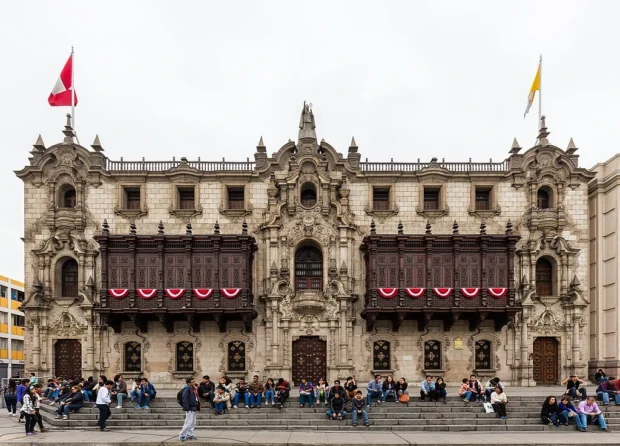Walking through Lima feels like stepping into a soft canvas painted by history, ocean breeze, and friendly voices. This city, perched by the Pacific Ocean, holds spaces where you can listen to stories whispered by old walls and taste flavors that speak of deep roots. Lima blends colonial art with modern pulse, offering visitors a journey not just for the eyes but for the spirit. Whether walking along the coastline or sitting quietly in a plaza, you feel the city’s calm rhythm. If you want to understand Lima gently, it’s not just about places-it’s about connecting with its people and pace.
Table of Contents
Main Landmarks in Lima Worth Visiting
One of the first places I wandered to was the Plaza Mayor, the heart of Lima’s historic center. The grandeur of the colonial buildings around, especially the Cathedral of Lima, holds centuries in their walls. The plaza is perfect at sunset when locals gather, children play, and the light softens the stone facades. Not far lies the Government Palace, guarded by soldiers in traditional dress. The feeling here is quiet yet full of hidden stories.
If intrigued by Lima’s history and grand spaces, exploring the Plaza Mayor reveals rich stories behind the city’s colonial heart.

Another calm moment came at the San Francisco Monastery. Its underground catacombs and the old library filled with yellowed books invite reflection. This site offers a cool shade from the city’s warmth and a chance to touch the city’s layered past.
For something closer to nature, the Miraflores district offers the Parque del Amor, a seaside park with colorful mosaics and sculptures celebrating love. Sitting on the benches here, watching the Pacific waves crash against the cliffs, was a peaceful pause. Walking along the Malecón, the coastal promenade, I found small lookout points that are less crowded, perfect for quiet meditation or simple breathing.

Tasting Lima: Flavors from Neighborhoods
Lima’s food is a story on its own. One cannot talk about this city without mentioning ceviche. In the neighborhood of Barranco, small eateries serve ceviche with fresh sea flavors and a squeeze of lime that wakes your senses. The freshness of the fish, the slight sting of chili, and the sweetness of corn blend gently on the tongue. In this part of the city, many places honor traditional recipes passed down generations, but with a thoughtful modern touch.
In addition to seafood, you’ll find dishes like anticuchos-grilled skewers often made from beef heart, seasoned with spices that make you curious. I tried them with local friends who recommended a purple corn drink called chicha morada, sweet and refreshing, perfect on a warm day.

Don’t miss the opportunity to visit a market like Mercado Surquillo, where the colors of fruits and vegetables invite you to slow down and admire nature’s offerings. Talking with vendors, I learned about local herbs and fruits unknown to me, such as lucuma, a sweet fruit used in desserts.
Getting Around Lima: Thoughts on Transport
Lima’s busy roads can feel overwhelming at first. After landing at Jorge Chávez International Airport, reaching the city center is simple by bus or shuttle services that run frequently. Buses are an affordable way to move, but best when you travel lightly and during less crowded hours.
After enjoying Lima’s gentle rhythm and tastes, you might like to visit Cancun, where vibrant beaches meet rich culture and unique flavors.

For shorter distances, I enjoyed riding the Metropolitano, a clean and fast bus system with dedicated lanes. Its red buses connect many main parts of Lima, including the airport area to downtown. Using a rechargeable card makes paying simple and fast. Walking is also delightful in districts like Miraflores or Barranco where the streets invite slow exploration and occasional stop for a coffee or art gallery visit.
Being a Guest: Customs and Gentle Behaviors
Living softly with locals means noticing their rhythm. Greetings often include a warm “buenos días” in the morning, or “buenas tardes” in the afternoon. Saying “por favor” (please) and “gracias” (thank you) opens many doors. When invited to a table, waiting for the host to start eating shows respect.
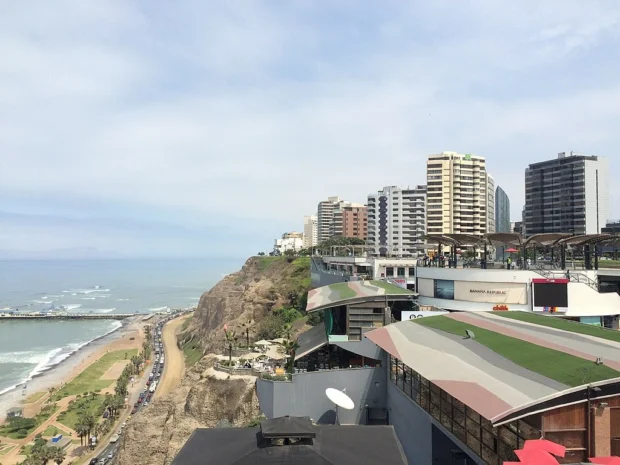
A helpful phrase is “¿Cuánto cuesta?” which means “How much does it cost?” This polite question is common when buying from market stalls or small shops. Locals appreciate patience and a smile more than sharp bargaining. Saying “con permiso” (excuse me) when moving through crowded spaces is also good manners.
A small but important note: avoid talking loudly or interrupting conversations. Lima’s culture values polite and calm speech. People often prefer listening and thoughtful replies, a gentle dance of words that invites real connection.
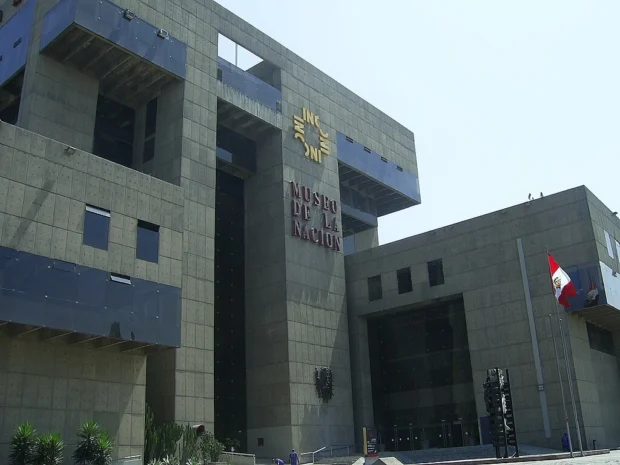
Stories and Quiet Discoveries
During a quiet walk near the Huaca Pucllana, an ancient adobe pyramid in Miraflores, I found a small garden where artisans work clay into delicate forms. Their techniques, rooted in pre-Inca times, reminded me how history breathes in everyday life here. These crafts survive thanks to community care and respect for tradition, a balance between past and present.
One evening, I joined a small group volunteering in a coastal clean-up near the district of Chorrillos. Seeing locals and visitors come together to protect the ocean made me realize how Lima’s beauty depends on mindful choices. The Pacific is not just a backdrop but a living landscape. Simple steps like carrying reusable bottles and choosing local goods seemed small but meaningful in this shared space.
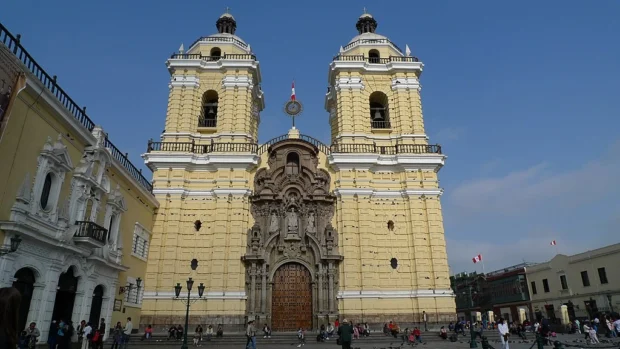
While wandering Lima’s neighborhoods, I learned about the myth of the “Lady of Cao,” a powerful woman leader from ancient northern Peru. Her story, told in local museums, echoes in the city’s respect for strong women in its history and culture. It’s a reminder that beneath Lima’s modern face lies profound cultural resilience.
After savoring Lima’s gentle rhythm, some travelers seek a vibrant energy—Cartagena’s colorful streets and lively music offer a contrasting but warm experience.
Where to Rest and Reflect
Choosing where to stay in Lima depends on what calm you seek. Miraflores is lively but still calm in quieter side streets, with cozy guesthouses near parks and the ocean. Barranco offers artistic bohemia and peaceful corners where music softly plays from small cafes.
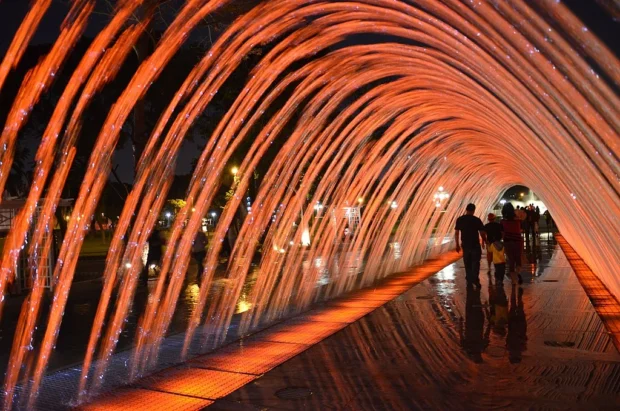
For those wanting to be immersed in history, the city center invites with its colonial buildings and slower pace in the early hours. Here, small inns and family-run guesthouses offer quiet nights under high ceilings and wooden beams. Each choice carries a different feeling, but all can be found with kind hosts who cherish cultural exchange and simple hospitality.
With every step in Lima, there is space to breathe, listen, and connect. Its blend of old and new, land and sea, people and stories invites travelers to slow down and appreciate a city that shares its heart in gentle ways.

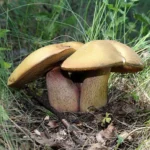
Minimalist traveler documenting slow journeys focused on mindfulness and sustainability.
- Palacio Arzobispal, Lima, Perú, 2015-07-28, DD 62 by Diego Delso on Wikimedia Commons – cc by-sa 4.0
- Lima, Peru…the Plaza de Armas de Lima by day (8444360764) by Murray Foubister on Wikimedia Commons – cc by-sa 2.0
- Miraflores Boardwalk by Julia Sumangil on Wikimedia Commons – cc by-sa 4.0
- Huaca Pucllana, Lima – Peru – panoramio (10) by Paulo JC Nogueira on Wikimedia Commons – cc by-sa 3.0
- Plaza Lima by Rodolfo pimentel on Wikimedia Commons – cc by-sa 4.0
- Larcomar – Miraflores, Lima – Peru – panoramio by Paulo JC Nogueira on Wikimedia Commons – cc by-sa 3.0
- Museo de la Nacion entrance by Andersmusician on Wikimedia Commons – cc by-sa 2.5
- Church of San Francisco (Lima, Peru) by slettvet on Wikimedia Commons – cc by 2.0
- Lima, Peru – Parque de la Reserva (Park of the Reserve) 07 by Avodrocc on Wikimedia Commons – cc by 2.0
- Barranco Street Art by spersper on Wikimedia Commons – cc by 2.0
